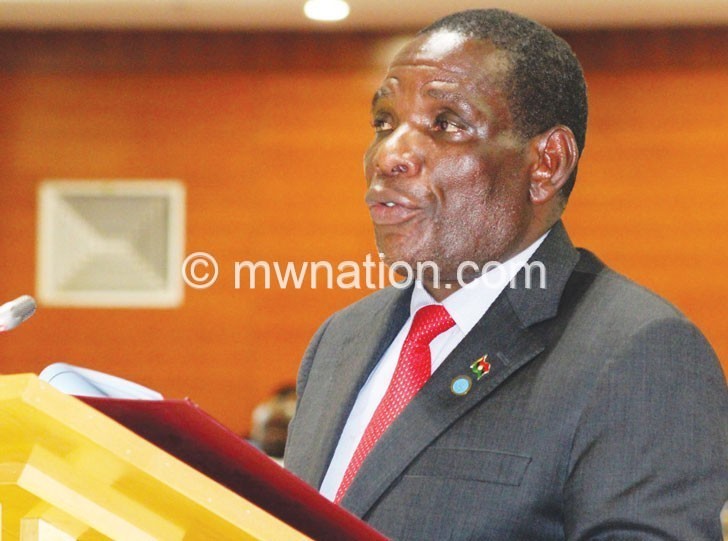Fiscal policy under spotlight
Treasury’s aspirations to reduce fiscal deficit to below the internationally acceptable threshold of three percent of gross domestic product (GDP) hangs in the balance following the upward adjustments of expenditure in the 2019/20 National Budget.
Ministry of Finance, Economic Planning and Development had hoped to reduce the 2019/20 fiscal deficit to 1.9 percent of GDP from the 2018/19 fiscal deficit of 5.1 percent of GDP on account of a regained donor confidence and fiscal consolidation through the continued implementation of Public Finance Management System reforms.

The 2019/20 Economic and Fiscal Policy Statement sought to achieve this through increased revenue collection by broadening the tax base; improving tax administration; enforcing the use of electronic fiscal devices; formalising the informal sector; and spending within available resources.
However, on Friday last week, Treasury revised upwards total expenditure and net lending from K1.74 trillion to K1.84 trillion due to an increase in wages and salaries, security related expenditures, court case expenditures and fresh presidential elections.
Fiscal deficit on the other hand was also revised upwards to 3.7 percent of GDP, although at this rate, this was lower than what was recorded in 2018/2019 at 5.1 percent and is within acceptable levels.
This deficit will be financed by domestic borrowing of K203.3 billion, representing 2.4 percent of GDP and the balance will be financed by foreign borrowing.
Minister of Finance, Economic Planning and Development Joseph Mwanamvekha told Parliament during the 2019/20 Mid-Year Budget Statement that during the second half of the current fiscal year, government will focus on enhancement of domestic revenue collection to achieve set targets for smooth budget implementation.
World Bank senior country economist Patrick Hettinger observed in the December 2019 Malawi Economic Monitor that although government anticipates efficiency and revenue gains from tax administration reforms, even compounded with the proposed tax reforms, the measures are unlikely to facilitate an increase of 4.5 percent of GDP in tax revenue.
The African Development Bank (AfDB) also recently observed that Treasury’s plan to reduce the fiscal deficit appeared ambitious, as the 2019 cyclone Idai flood recovery costs linger.
In its annual publication, African Economic Outlook 2020, the pan-African bank observed that with public debt rising above the sustainability threshold of 60 percent of GDP, fiscal space is tight.
At the start of the new financial year, MCCCI chief executive officer Chancellor Kaferapanjira observed that whilst there have been a few positive tax policy measures, overall there are more punitive measures than positive ones.
He said it is unrealistic to assume a rosy picture for the 2019/20 National Budget in a year when the business environment has become more hostile. n





